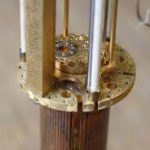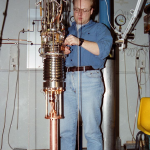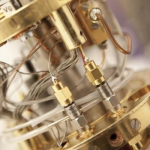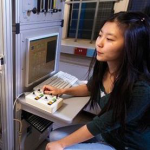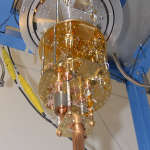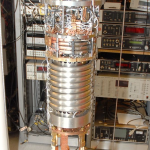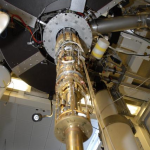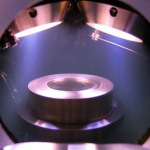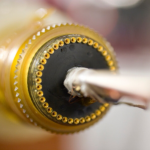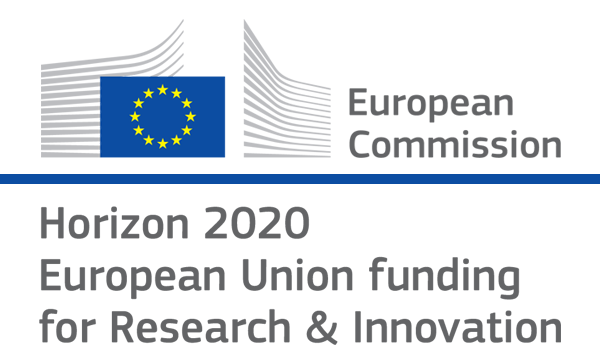

- Photon Transport in a Bose-Hubbard Chain of Superconducting Artificial Atoms
G. P. Fedorov et al., Phys. Rev. Lett. 126, 180503 (2021) - Path-Dependent Supercooling of the
He3 Superfluid A-B Transition
Dmytro Lotnyk et al., Phys. Rev. Lett. 126, 215301 (2021) - Superconductivity in an extreme strange metal
D. H. Nguyen et al., Nat Commun 12, 4341 (2021) - High-Q Silicon Nitride Drum Resonators Strongly Coupled to Gates
Xin Zhou et al., Nano Lett. 21, 5738-5744 (2021) - Measurement of the 229Th isomer energy with a magnetic micro-calorimeter
T. Sikorsky et al., Phys. Rev. Lett. 125 (2020) 142503
Electric field control of radiative heat transfer in a superconducting circuit
Olivier Maillet, Diego Subero, Joonas T. Peltonen, Dmitry S. Golubev, Jukka P. PekolaHeat is detrimental for the operation of quantum systems, yet it fundamentally behaves according to quantum mechanics, being phase coherent and universally quantum-limited regardless of its carriers. Due to their robustness, superconducting circuits integrating dissipative elements are ideal candidates to emulate many-body phenomena in quantum heat transport, hitherto scarcely explored experimentally. However, their ability to tackle the underlying full physical richness is severely hindered by the exclusive use of a magnetic flux as a control parameter and requires complementary approaches. Here, we introduce a dual, magnetic field-free circuit where charge quantization in a superconducting island enables thorough electric field control. We thus tune the thermal conductance, close to its quantum limit, of a single photonic channel between two mesoscopic reservoirs. We observe heat flow oscillations originating from the competition between Cooper-pair tunnelling and Coulomb repulsion in the island, well captured by a simple model. Our results highlight the consequences of charge-phase conjugation on heat transport, with promising applications in thermal management of quantum devices and design of microbolometers.
Nat Commun 11, 4326 (2020)
doi: 10.1038/s41467-020-18163-8
arxiv: https://arxiv.org/abs/2002.11591
